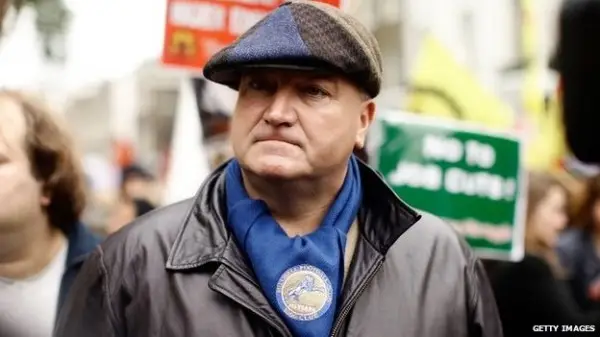The death of Bob Crow has robbed London of one of its largest and most powerful personalities. As leader of the RMT – the union that represented many of London’s tube drivers and transport workers – he had the power to bring one of the world’s largest and most prosperous cities to a grinding halt (and often did). Little wonder then that, even in our current post-industrial age, he was one of the only union leaders who was also a household name.
Whether you agree or disagree with his politics and tactics, it is impossible to refute his tenacity and effectiveness in fighting his members’ corner. As Ken Livingstone said in response to the news of his death: “If you think in terms of what’s a tribute to him, I can’t think of any other job that working class people do that’s got good wages and conditions and a pension – all the others have been eroded.” Crow himself was always proud to remind people that his members were the only workers whose pay rose every single year, even during austerity. During his twelve years at its helm, RMT membership grew from 20,000 to 80,000.
Crow was also a man of deep conviction, often proving to be as much of a pain the neck of the Labour leadership as he was to Tory Mayor Boris Johnson on those issues he and his membership felt deeply about.
But the passing of Bob Crow also invites speculation about the future of both the RMT and the London Underground. Tensions between the RMT and TfL remain high over plans to automate tube ticket halls and axe 950 staff. The Mayor still harbours ambitions to move to introduce a driverless fleet of tube trains and many Conservatives in both the London Assembly and Parliament continue to lobby for new laws to limit the RMT’s ability to go on strike, including a possible requirement for a minimum turnout for strike ballots. Whilst to some extent these machinations are a testament to just how seriously Bob Crow’s opponents were intimidated by his achievements, they are nonetheless items waiting in the in-tray of whoever succeeds him as RMT General Secretary.
Bob Crow has not only set the bar very high for his successor and left them a brimming in-tray, he has also left vacant the mantle of being a hate figure for many in the media. British press barons delighted in depicting Bob Crow as a champagne socialist, gleefully reporting every lunch at the Savoy or Copacabana beach holiday he enjoyed. They also revelled in revealing that he lived in a council house despite earning a six-figure salary. Ken Livingstone has even gone so far as to suggest that this vilification may have contributed to Crow’s untimely death aged just 52. Taken together, this legacy may make the post of RMT General Secretary a poisoned chalice for all but the bravest of trade unionists. Only working class heroes need apply.





